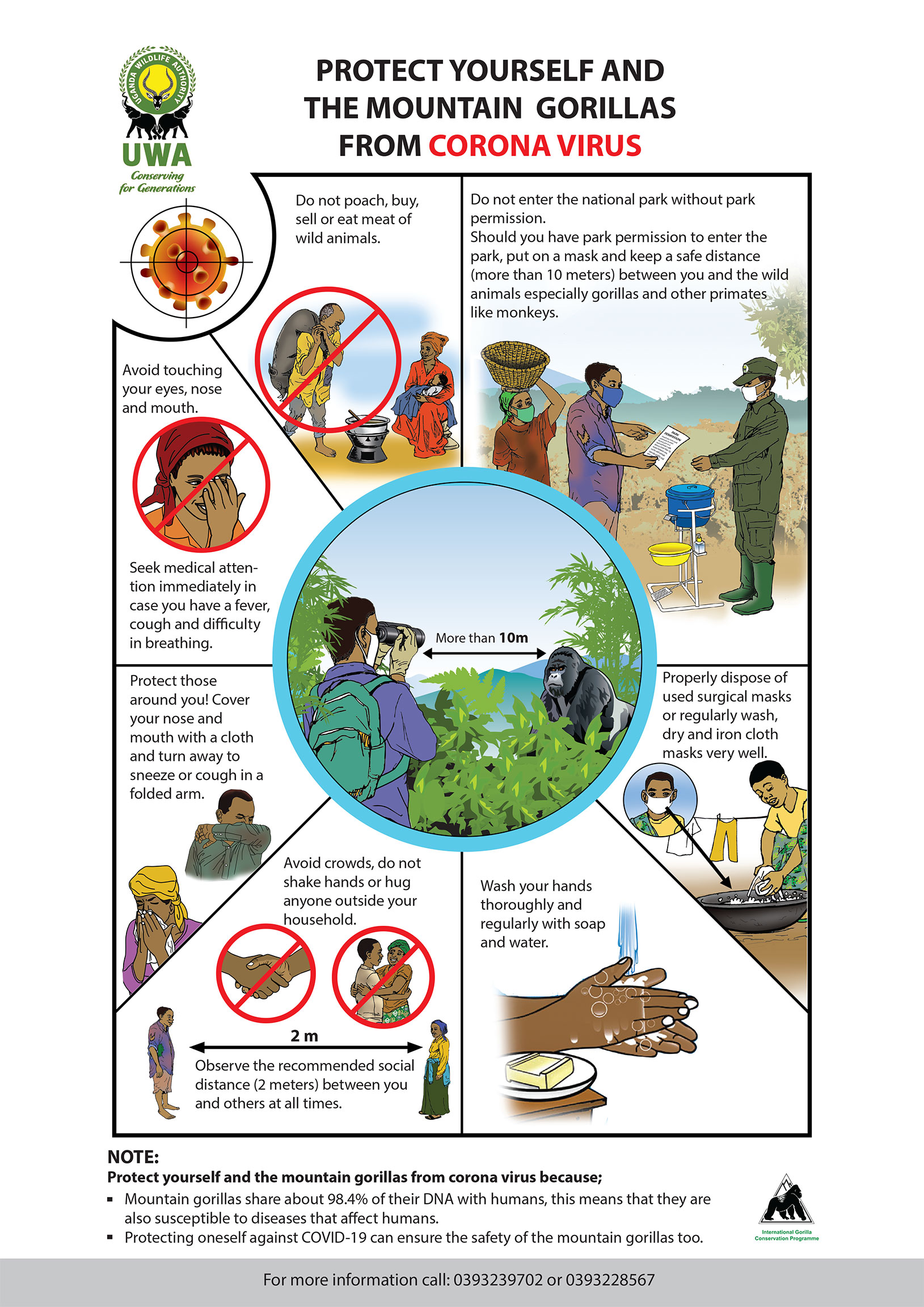Covid-19 and Mountain Gorillas


Why are mountain gorillas at risk?
Because mountain gorillas are physiologically similar to humans with whom they share over 98% DNA, they are likely at high risk of contracting COVID-19. There is abundant scientific evidence that great apes are susceptible to infection with most, if not all, human respiratory pathogens (Kondgen et al 2010, Palacious et al 2011).
It has been determined that diseases can be transmitted by the people that come into close proximity with the mountain gorillas – caretakers, tourists, trackers, researchers, rangers, guides, porters, poachers and local communities where great apes forage in their land.
If a novel virus like SARS CoV-2 starts circulating in the great ape populations and causes significant and widespread disease, the impact could be severe, contributing to local or subspecies extinction since mountain gorillas exist in small, vulnerable populations (Non Human Primate COVID-19 Information Hub).
The compliance of individuals to the anti COVID-19 measures and the great ape visitation rules in place can save mountain gorillas from the COVID-19 pandemic. Precisely their safety is dependent on our actions.
To read and learn more about COVID-19 and mountain gorillas visit www.gorillaplan.org
